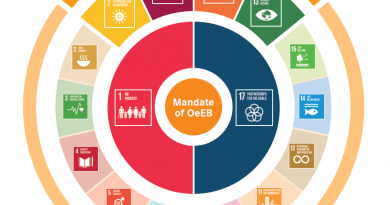US Justice System Serves Hypocrisy to Whistleblowers
Madison McHugh
Associate Editor
As the United Nations and many of its member states call for transparency abroad, the United States continues to abuse the definition of security to justify the incarceration of whistleblowers, so called for the act of alerting the public to corruption within government agencies. The result? A duplicitous first-world state whose hypocrisy undermines its attempts at reform in the third world.
In the U.S., the hypocrisy is most prevalent in the abuse of the Espionage Act. Considering that it was created when the U.S. formally entered World War I, it is widely thought to be an outdated document. However, President Barack Obama has charged eight whistleblowers for violating the Espionage Act over the course of his presidency, according to Mic.
While speaking to the United Nations General Assembly in 2010, Obama made remarks about other countries’ violations of human rights during times of economic unease. “And when we gather back here next year, we should bring specific commitments to promote transparency; to fight corruption; to energize civic engagement; to leverage new technologies,” he said. Yet his words ring hollow—a call for anti-corruption tactics does not justify the United States government, whose obvious violations against human rights continue to plague the country.
Much controversy surrounds the charges against Edward Snowden, the former National Security Agency contractor who revealed the government’s invasive spying on citizens, and their violations of the First, Fourth, and Fifth Amendments. The three charges against him under the Espionage Act would put him in jail for up to ten years, but is he guilty of theft and espionage despite the exposure of a crime against public privacy?
The NSA’s phone spying was ruled illegal under the Patriot Act by the Supreme Court on May 7, two years after Snowden released the information to the media. However, there was no specification of whether the program is constitutional. It was sent back to a lower court for further proceedings.
Yet John Kiriakou of the Guardian argues, “This is the same Justice Department that harassed, surveilled, wiretapped, and threatened Martin Luther King, Jr., and that recently allowed weapons to be sold to Mexican drug gangs in the Fast and Furious scandal. Just because they’re in power doesn’t mean they’re right.”
The relationship between power and morality is the basis of international law and the reason for new discussions about sovereignty, and we must remain cognizant of the fact that corruption affects just as many developed states as it does the third-world.
Glenn Greenwald discussed on CNN’s The Lead that if Snowden returns from his one-year asylum in Russia, he will most certainly be convicted. Greenwald said, “Under the Espionage Act, you’re not allowed to come into court and say, ‘I was justified in disclosing this information.’ There is no whistleblower exception in the Espionage Act.” In fact, due to this lack of justification, there is no telling what Snowden could admit to in a court of law except guilt.
Unfortunately, the odds are stacked against Snowden due to the Supreme Court’s lack of definite ruling towards the NSA, and the Espionage Act’s limitations to evidence and explanation in a court of law. Yet, it is these very “legalities” which are the most corrupt means and the reason the U.S. will never lead the international charge for transparency. Until we can fix the justice system at home, there should be no expectation for change abroad influenced by a hypocritical government such as the United States.


